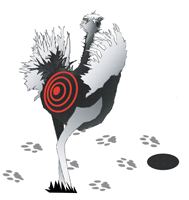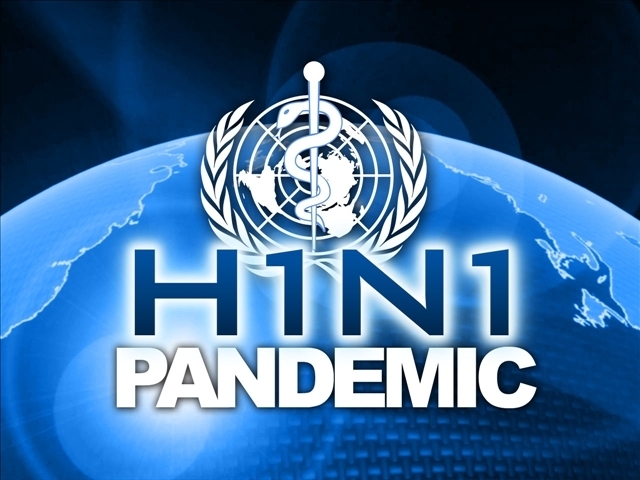|
|

|
CRISIS MANAGER
The Internet Newsletter about Crisis Management
Editor: Jonathan Bernstein
"For Those Who Are Crisis Managers,
Whether They Want to be or Not"
ISSN:1528-3836
© 2009 Jonathan Bernstein
|
| Volume X, Number 19 | November 30, 2009
|
|
JUST A THOUGHT
Vulnerability assessment, planning and training are the tripod that should support any crisis preparedness program.
Jonathan Bernstein
|
|
FROM THE EDITOR
There are restaurants in this country that stopped serving pork for many months even after widespread announcements that the H1N1 virus -- "Swine Flu" -- could not be contracted by eating pork. That and similar irrational reaction to perceived health risks prompted me to write this issue's first article, "The H1N1 Effect." Soon to be a book by Robin Cook, no doubt, but you read it here first.
Then, from "down under," where they must think we're "up over," Tony Jaques brings us a strong case history about a recent Australian oil well leak, which is contrasted nicely with a 1995 incident in Europe's North Sea that was also discussed in this ezine some years back.
As always, if you like what you see -- please, share it with others and tell them to subscribe!

My best to all, Jonathan
|
THE H1N1 EFFECT
By Jonathan Bernstein
|
|
The H1N1 Effect: When, faced with perceived
health risks, consumers make purchasing decisions about a given product based
on fear, conjecture and media hype versus the facts concerning the actual risk.
In the
first two years after the term "Swine Flu" was used to describe the illness
that mutated and jumped to humans from pigs, the U.S. Pork Industry suffered
losses estimated to be in excess of $5 billion.
This despite the reality that what came to be known more frequently as
H1N1 - partially as a result of the outcries from farmers - cannot be
contracted from eating pork. And those
loss figures do not, of course, include either the collateral damage caused to meat
retailers and restaurants or comparable figures from other regions of the
world. humans from pigs, the U.S. Pork Industry suffered
losses estimated to be in excess of $5 billion.
This despite the reality that what came to be known more frequently as
H1N1 - partially as a result of the outcries from farmers - cannot be
contracted from eating pork. And those
loss figures do not, of course, include either the collateral damage caused to meat
retailers and restaurants or comparable figures from other regions of the
world.
Global
reaction to the threat of BSE - most of us know it as "Mad Cow Disease" - was far
in excess to the actual threat to humans.
Have you
heard anyone say, during the past year or two, "I'll never buy anything made in
China again" or the more frequent variation "I'll never eat food containing
ingredients from China again - or give it to my pets."
Any number
of U.S. food recalls, even after government announcements made it clear that
the problems impacted or originated from a limited geographic area, prompted
much more widespread consumer avoidance until the fear subsided - usually non-coincidental
with the media and blogosphere finding something else to panic about.
I'm not a
psychologist and hence will not try to explain why people react as they
have. As a crisis management
professional, I need only to know that they have,
and will again, demonstrate what I
call "The H1N1 Effect,", which occurs when consumers make fear-based irrational
decisions about a perceived health risk that wreak extensive financial damage, threaten
organizational and/or brand reputations, and cause severe business interruptions.
Knowing
this, it is incumbent on crisis managers, particularly those involved with
products which could potentially impact consumer health and/or safety, to be
prepared when their stakeholders could be the next victim of "The H1N1
Effect." Some elements of preparedness would
include:
- Closely tracking developments related to the
health/safety of your products, using expert resources to help you spot early
warning signs of risk.
- "What
if..." brainstorming involving internal parties and external experts, the goal
being to think through the process you would have to follow to respond should a
worst-case scenario occur.
- Creating
educational materials about your products and/or industry and its health/safety
practices that could be widely and rapidly disseminated in response to the
demand that would no doubt be created by an "H1N1 Effect" event.
- Ensuring
that your organization/industry has a very strong online presence that can be
used in the near-term to build a cushion of goodwill and during a crisis for
rapid communication.
- Creating
business continuity and crisis communications plans, with the latter including
internal and external elements, both B2B and direct-to-consumer.
- Ensuring
that appropriate personnel are trained to use those plans, to include media
training and simulation exercises.
A lesson
learned the hard way by some industries is that you shouldn't rely on the U.S.
government or even your own trade organizations to protect your reputation and
bottom line when the stuff hits the fan.
For weeks after BSE was finally detected in a U.S.-based cow, I couldn't
find a single restaurant server, or grocery store employee, who could tell me
with certainty that the beef I bought at their locations was safe to eat. The government's announcements were all in
consumer-unfriendly jargon, and the industry associations were completely
unprepared despite the known threat. If they
had been prepared to support their distribution chain with messaging that would
minimize loss of sales, I would have been given a reassuring handout right on
the scene.
The next "H1N1
Effect" is coming. Are you prepared?
|
BRAND IDENTIFICATION IN A CRISIS
Lessons from An Australian Oil Well
By Tony Jaques
|
A massive environmental crisis in the Timor
Sea of f northwestern Australia provides some telling lessons in branding
identification in a crisis. f northwestern Australia provides some telling lessons in branding
identification in a crisis.
On 21 August 2009 an oil rig began leaking
oil and gas, which started spreading to the Australian coast and also towards
fishing grounds off nearby Indonesia.
Repeated efforts to plug the leak failed
and the entire rig eventually burst into flames, providing dramatic television
pictures shown around the world.
After more than ten weeks (3 November) the
leak was finally plugged and the fire extinguished, but not before thousands of tons of oil escaped into the sea, probably
Australia's worst ever oil spill.
The drilling rig operators claimed oil was
leaking at up to 400 barrels a day, while the Australian Federal Government
estimated it was in fact up to 2,000 barrels a day.
A major government inquiry will eventually
answer some of the technical and environmental questions. But there is an
immediate lesson for crisis managers about branding in a crisis.
Throughout weeks of intense news media
coverage, reporters were uncertain what to call the leaking rig. Some initial
news referred to it as the West Atlas Rig, or the Timor Sea Rig, and later the
Montara Well. But the name of the oil company was never in the headlines.
The operator is a little known company
called PTTEP Australasia, and the company name was always correctly used to
identify the operator and the company spokesman. However most Australian
journalists and the public had never heard of the company, and even fewer knew,
even after the crisis, that it is a wholly owned subsidiary of PTTEP of
Thailand.
From the perspective of crisis
communication, how differently would the media coverage have been if the rig
had been operated by BP or Shell or Chevron?
The company name would certainly have been
in every headline and, as the environmental damage ballooned, it is highly
likely that there would have been protests in the street and consumer
backlash. In the event, Australian environmental
groups and Green politicians were extremely vocal and extremely active, but
without a recognised local target their efforts were dispersed and muted.
Contrast this with the Brent Spar crisis of 1995 which led to a boycott of Shell petrol stations in Europe and even fire
bombing of some facilities. Although the offshore facility itself did not carry
the Shell name, the operator was a high profile and very visible company. And
of course in that case the alleged environmental danger never actually took
place.
In the wake of the notorious Exxon Valdez
oil spill of 1989 one lesson learned was that oil companies around the world
quickly removed their identity from the names of oil tankers. Today vessel names such as Shell Enterprise or
BP explorer are a thing of the past. In fact Exxon Valdez herself was renamed Sea
River Mediterranean.
One important lesson for crisis managers is
that the news media demand a "shorthand" way of identifying any story, and a
company brand is a very convenient option, especially in a crisis. Witness the
"BP Texas Fire", the "Tylenol disaster", the "Intel Pentium chip" failure, and
the "Firestone tyre" scandal. Each of these, and many more, have entered into
the public conscience and the brand will always be associated with the crisis.
Yet, even after ten weeks of daily
headlines, most Australians still would not know who owned the leaking oil rig
so close to their shores. This is not to suggest that companies in high risk
operations should deliberately disguise their identify. But it certainly should be remembered when
over-enthusiastic corporate managers get a yearning to "build the brand".
Tony Jaques is Principal of Issue Outcomes Pty Ltd, a Melbourne based consultancy operating in then field of issue and
crisis management in Australia and across Asia-Pacific.
|
BUSINESS ANNOUNCEMENTS
(aka blatant self-promotion)
Now
Available At The Crisis Manager Bookstore
- Keeping
The Wolves At Bay: A Media Training Manual (In Hard Copy And PDF Formats)
- The
Nastiest Media Tricks And How To Prevent Them (CD)
- Crisis
Management & The Law (CD)
- Internet
Counterintelligence (CD)
- How
To Conduct A Vulnerability Audit (CD)
Jonathan Bernstein also offers
on-site and remote webcam and WebEx-based media training worldwide, using Keeping the Wolves at Bay as the
basis for training. Write to [email protected].
for more information.
Want To Blog
And Tweet About Your Organization But Don't Have Time?
Missing out on all the promotional and SEO
advantages of doing so? Hire someone to be your voice...like Erik Bernstein,
aka "Son of Crisis Manager."
More info:[email protected].
|
GUEST AUTHORS
GUEST AUTHORS are very welcome
to submit material for "Crisis Manager." There is no fee paid, but most
guest authors have reported receiving business inquiries as a result of
appearing in this publication. Case histories, experience-based
lessons, commentary on current news events and editorial opinion are
all eligible for consideration. Submission is not a guarantee of
acceptance.
|
ABOUT THE EDITOR & PUBLISHER
Jonat han Bernstein is president of Bernstein Crisis Management, Inc., a national crisis management public relations agency providing 24/7
access to crisis response professionals. The agency engages in the full
spectrum of crisis management services: crisis prevention, response,
planning & training. He has been in the public relations field
since 1982, following five-year stints in both military intelligence
and investigative reporting. Write to [email protected]. han Bernstein is president of Bernstein Crisis Management, Inc., a national crisis management public relations agency providing 24/7
access to crisis response professionals. The agency engages in the full
spectrum of crisis management services: crisis prevention, response,
planning & training. He has been in the public relations field
since 1982, following five-year stints in both military intelligence
and investigative reporting. Write to [email protected].
|
|
LEGAL
DISCLAIMER
All
information contained herein is obtained by Jonathan Bernstein from sources
believed by Jonathan Bernstein to be accurate and reliable.
Because of
the possibility of human and mechanical error as well as other factors, neither
Jonathan Bernstein nor Bernstein Crisis Management is responsible for any
errors or omissions. All information is provided "as is" without
warranty of any kind. Bernstein Crisis Management and Jonathan Bernstein make
no representations and disclaim all express, implied, and statutory warranties
of any kind to the user and/or any third party including, without limitation,
warranties as to accuracy, timeliness, completeness, merchantability, or
fitness for any particular purpose.
Unless due
to willful tortuous misconduct or gross negligence, Jonathan Bernstein and
Bernstein Crisis Management shall have no liability in tort, contract, or
otherwise (and as permitted by law, product liability), to the user and/or any
third party.
Under no
circumstance shall Bernstein Crisis Management or Jonathan Bernstein be liable
to the user and/or any third party for any lost profits or lost opportunity,
indirect, special, consequential, incidental, or punitive damages whatsoever,
even if Bernstein Crisis Management or Jonathan Bernstein has been advised of
the possibility of such damages.
A service
of this newsletter is to provide news summaries and/or snippets to readers. In
such instances articles and/or snippets will be reprinted as they are received
from the originating party or as they are displayed on the originating website
or in the original article. As we do not write the news, we merely point
readers to it, under no circumstance shall Bernstein Crisis Management or
Jonathan Bernstein be liable to the user and/or any third party for any lost
profits or lost opportunity, indirect, special, consequential, incidental, or
punitive damages whatsoever due to the distribution of said news articles or
snippets that lead readers to a full article on a news service's website, even
if Bernstein Crisis Management or Jonathan Bernstein has been advised of the
possibility of such damages. Authors of the original news story and their
publications shall be exclusively held liable. Any corrections to news stories
are not mandatory and shall be printed at the discretion of the list moderator
after evaluation on a case-by-case basis.
|
|
|
|
|
|
|
|